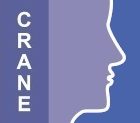
Research

There are many research projects in progress which aim to learn more about cleft lip and palate, its causes, and the best way to treat and support people affected by cleft.
CLAPA works to make sure that the UK cleft community have opportunities to get involved with research studies. This could be as a participant in a study, or as someone with lived experience who helps to guide how the research itself is carried out.
If you’re personally affected by cleft lip and palate, learn more about how you could get involved with cleft research.
Research Projects and Summaries
On this page, you can learn more about large research projects like CRANE and the Cleft Collective, or click through to a listing of recent research summaries shared with CLAPA. Research can take a long time to carry out, so it can be years before the results of a study can be published.
For other research on cleft lip and palate, check out The Cleft Palate Craniofacial Journal.
For Cleft Researchers and NHS Cleft Teams
Learn more about how CLAPA can help with your study, Patient Engagement Group, or other project.
Interested in adding your research summary to our list? Contact External Engagement Coordinator Gillian McCarthy at [email protected].
-
Latest Research Summaries
A list of recent research summaries shared by researchers, most of whom worked with CLAPA to complete their projects.
-
Get Involved with Research
Opportunities for people from the cleft community to get involved with research, such as joining a study, sitting on a steering group, or taking part in surveys.
Major Cleft Research Projects
-
The CRANE Database
The CRANE database records information about children and adults born with cleft lip and cleft palate in England, Wales and Northern Ireland.
-
The Cleft Collective
The Cleft Collective is one of the largest cleft lip and palate research programmes in the world.
-
Your Top 12 Questions
The top 12 unanswered questions about cleft lip and palate research were compiled by the James Lind Alliance in consultation with people affected by cleft.
-
Centre for Appearance Research (CAR)
The world’s largest research group focusing on the role of appearance and body image in people’s lives. They have published many studies on people with visible differences like a cleft lip scar.





